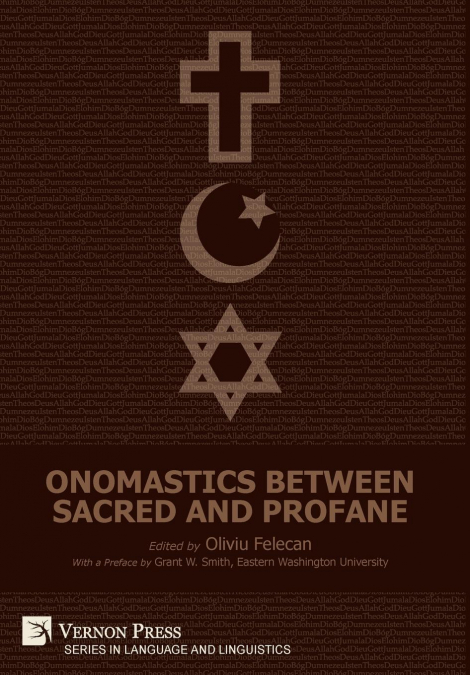
Oliviu Felecan
Religiously, God is the creator of everything seen and unseen; thus, one can ascribe to Him the names of His creation as well, at least in their primordial form. In the mentality of ancient Semitic peoples, naming a place or a person meant determining the role or fate of the named entity, as names were considered to be mysteriously connected with the reality they designated. Subsequently, God gave people the freedom to name persons, objects, and places. However, people carried out this act (precisely) in relation to the divinity, either by remaining devoted to the sacred or by growing estranged from it, an attitude that generated profane names. The sacred/profane dichotomy occurs in all the branches of onomastics, such as anthroponymy, toponymy, and ergonymy. It is circumscribed to complex and interdisciplinary analysis which does not rely on language sciences exclusively, but also on theology, ethnology, sociology, psychology, philosophy, anthropology, geography, history and other connected fields, as well as culture in general. Despite the contributors’ cultural diversity (29 researchers from 16 countries – England, Finland, Germany, Hungary, Italy, Japan, Jordan, Kenya, Nigeria, Poland, Romania, Russia, South Africa, Spain, U.S.A., and Zimbabwe – on four continents) and their adherence to different religions and faiths, the studies in Onomastics between Sacred and Profane share a common goal that consist of the analysis of names that reveal a person’s identity and behavior, or the existence, configuration and symbolic nature of a place or an object. One can state that names are tightly connected to the surrounding reality, be it profane or religious, in every geographical area and every historical period, and this phenomenon can still be observed today. The particularity of this book lies in the multicultural and multidisciplinary approach in theory and praxis.